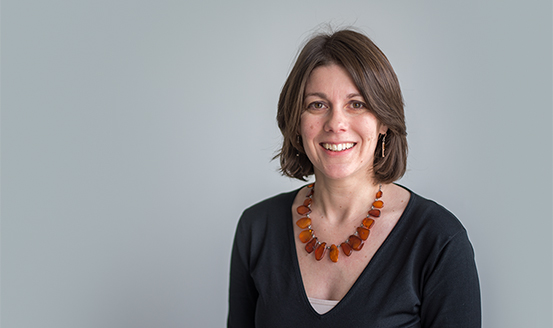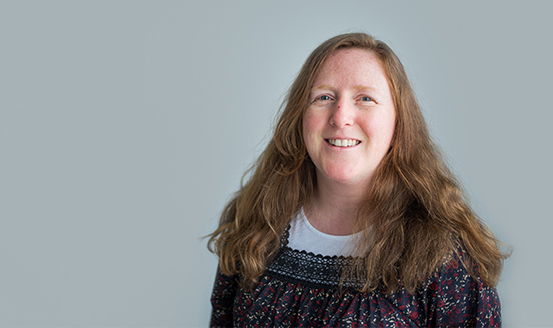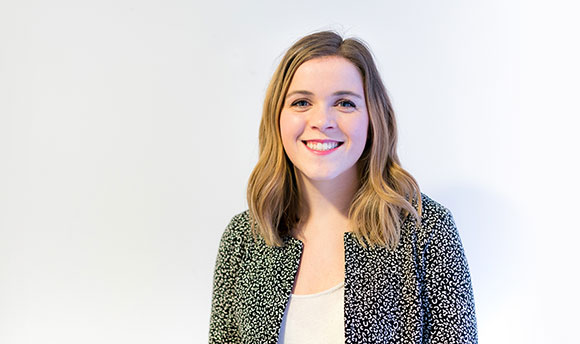Occupational Therapy (Pre-Registration) - MSc
This MSc in Occupational Therapy (Pre-Registration) course attracts people holding a relevant undergraduate honours degree who wish to change career and become an occupational therapist.
This course will give you the knowledge and practical skills that you need to develop a new career as an occupational therapist in two years. It is an intensive professional programme of study; developing theoretical, analytical, practical, evaluative and reasoning skills as well as professional values.
It is delivered full time and you will complete a number of placements that enrich the learning experience and prepare you for a diverse practice context. On completion, you will be eligible to apply for registration with the Health & Care Professions Council to work as an occupational therapist.
Why QMU?
- Excellent support from staff: Smaller than average class sizes mean you will get close support and guidance from staff who get to know you.
- Staff expertise: You will be taught by a staff group with diverse experience and expertise both in practice areas and research. We work closely with practice partners, third sector organisations and individuals with lived experience, all of this enhances your learning on the course.
- Variety of teaching and learning methods: The course is well grounded in practice by integrating and applying practical examples throughout the course, for example, case scenarios linked to assignments, vivas and problem-based learning tasks, and visiting lecturers. This integrates placement and coursework and therefore makes learning relevant to practice.
- Encouraging you to think: Critical thinking is encouraged throughout the course, helping learners to develop professional reasoning skills. Learners are facilitated to explore and justify their thinking and decision-making, as well as considering the bigger picture.
- Our graduates get jobs!: We have very high employability rates in the UK, in Ireland and further afield, in the USA and Canada.
- Professional registration: Upon successful completion of the course, you can apply for membership of the Royal College of Occupational Therapists and will be eligible to apply for registration with the Health & Care Professions Council to work as an occupational therapist.
Studying MSc Occupational Therapy (Pre-Registration)
Occupational Therapy (Pre-Registration) - MSc: More information and what you will achieve
Occupational therapists assess individuals’ and communities’ disruption and disengagement from their occupations. They facilitate alternative ways for people to re-engage and participate in their occupational roles to improve their quality of life, wellbeing and sense of belonging. Modules on this course reflect contemporary and prospective occupational therapy practice. The course is underpinned by person-centred, evidence-informed and occupation-focused occupational therapy practice.
How will I be taught?
Structure and exit awards
On completion of the full MSc (340 credits) or a PgDip (120 credits), you will be eligible to apply to register with the Health & Care Professions Council and work as an occupational therapist.
Teaching, learning and assessment
The course philosophy integrates academic study and practice-based learning, possessing a strong occupation and person-centred focus. It employs adult learning perspectives including: learner responsibility, active participation, collaboration, autonomy, and learning as a community. Problem-based learning using practice scenarios is an important part of the learning experience, where students work to develop professional reasoning, evidence-informed decision making, and interpersonal and team working skills. Learning is thus a facilitated process of acquiring enquiry skills, interpreting information, group discussion, exchanging of perspectives, creation of knowledge and arriving at a position or judgment. Teaching methods incorporate self-directed study, practice scenarios, group work, workshops, e-Learning modules, digital technology, reflection, lectures and placements.
Assessment methods include peer and self-assessment, written assignments, viva voce assessments, presentations, projects and placements.
Placements
There are four placements in total, all full-time:
Year One
- Practice-based Learning 1 (6 weeks)
- Practice-based Learning 2 (6 weeks)
Year Two
- Practice-based Learning 3 (9 weeks)
- Practice-based Learning 4 (10 weeks)
Placements can take place anywhere in Scotland. QMU allocates all placements in collaboration with students. Placements are situated in health, social care, education and the third sector.
Teaching hours and attendance
Each module studied on campus will require you to attend classes and carry out independent work. Academic modules require you to attend QMU from 9.00am to 6.00pm. You should be aware that services may operate over seven working days, so placements may involve evening and weekend attendance. You will be expected to mirror the working hours of practice educators and be required to purchase professional indemnity insurance.
Class sizes
Normally, we have up to 40 pre-registration MSc students in any given cohort. Some of the classes will be integrated with our other pre-registration occupational therapy students undertaking the 4 year route (MOccTher/ BSc Hons), please contact the team for more information about class sizes.
Teaching staff
You can read more about the teaching staff on this course at the bottom of this page. Please note that teaching staff is subject to change.
Modules
Year One
- Foundations of Occupational Therapy Practice (40 credits): This module will enable you to develop a critical understanding of the key theories, skills and values for the practice of occupational therapy and the influence of context in shaping praxis.
- Preparation for Practice-based Learning (0 credits): The activities within this module enable you to demonstrate that you have completed all of the mandatory learning activities and tasks required in preparation for practice-based learning.
- Occupational Therapy Process and Practice (40 credits): This module teaches you everything about the occupational therapy process, from assessment and evaluation to intervention planning and therapeutic decision making. You will engage in critical debate, utilising an evidence-based approach throughout.
- Practice-based Learning 1 (20 credits): This practice-based learning module will orientate you to the dynamics of the practice setting, and enable you to establish foundational skills for professional practice.
- Practice-based Learning 2 (20 credits): This practice-based learning module will enable you to demonstrate practice knowledge and apply the occupational therapy process in a service context.
Year Two
- Elective module (20 credits): You will be able to choose from a number of options on offer (these may change each year, depending on availability), for example: transitions and occupation across the life course, working with people who are neurodiverse, working with individuals affected by dementia, occupation-based social transformation.
- Research Methods (20 credits): This module will enable you to develop the research skills and knowledge necessary to undertake an independent research project.
- Transforming Occupational Therapy Practice (40 credits): In this module you will critique occupational therapy practice and contexts, developing skills and knowledge to transform practice, in order to improve the health, wellbeing and occupational lives of individuals, carers and communities.
- Practice-based Learning 3 (40 credits): This module will enable you to articulate and critique specific practice knowledge and systematically apply an occupational therapy process in a service context.
- Practice-based Learning 4 (40 credits): In this final practice-based learning module, you will be able to practice and demonstrate competencies commensurate with those of an entry level practitioner.
- Dissertation project (60 credits): In this final module of your studies, you will develop and apply the skills of research and enquiry to a topic of your choosing.
NB The modules and placements listed are correct at time of posting (October 2023). In the event that modules change, QMU will seek to use reasonable endeavours to ensure that there is no detrimental impact on students. Please check our website for updates.
Career opportunities
Occupational therapists are employed in a diverse range of settings including the NHS, public health, education, employment services, local authorities, prison service, third sector organisations and private practice. Outside the UK, graduates of this course have gone on to work in Hong Kong, Australia, Europe, Canada, USA and New Zealand.
Occupational Therapy (Pre-Registration) - MSc: Entry requirements and application information
Entry requirements
- Evidence of a first degree at honours level 2:2 or above in an appropriate area including: health, biological sciences, physical sciences, social sciences, education or humanities.
- You will be required to provide evidence of English language competence at no less than IELTS 6.5 with no individual component score less than 6.0. You need to be aware that in order to be eligible to register with the Health and Care Professions Council (HCPC), you are required to be able to communicate in English to an IELTS standard equivalent to 7 with no element below 6.5.
- Evidence of knowledge and commitment to occupational therapy as a positive career choice.
- Evidence of a written research project, a research module or research experience.
- Demonstrate substantial involvement and responsibility with diverse groups of people (inclusive of marginalised people or those with impairments) in a personal, employment or voluntary capacity, in the health, social care, education or third sector context. Substantial involvement might be indicated by a time period of at least six months or equivalent.
- Mature applicants who graduated more than 10 years ago will be considered with the condition that they successfully complete a relevant module at master’s level (SCQF Level 11 or equivalent) if they do not have equivalent CPD.
- Two satisfactory references, one should be academic, the other, professional.
- All successful applicants will participate in a values-based group interview.
Other requirements
A satisfactory criminal records check from the Protection of Vulnerable Groups (PVG) Scheme, an occupational health check and personal indemnity insurance (normally through membership of the professional body) are required.
Other costs
- The cost of professional indemnity insurance is the responsibility of the student. For more information on this, visit the PG 2024 fees page on our website.
- The additional costs associated with placement travel and accommodation are the responsibility of the student. Students who receive SAAS funding may be able to claim for some of these expenses to be reimbursed.
- Uniform, PVG and badge costs – please see PG 2024 fees page on our website.
Applying for this course
For more information on applying, or to apply for this course, please follow the links in the 'Start your application' box at the top right of this page.
Application deadline
Home: End of August for September 2024 start.
International: 26th July for September 2024 start
Terms and Conditions
The delivery of this course is subject to the terms and conditions set out in our 2024/25 Entry - Terms and Conditions (Postgraduate).
More information and QMU contacts
Opportunities to meet us
View specialist facilities film
Interview with Beth Crockett
Become your best you: study at QMU
Course Overview
A Student Story (see bottom of page for more)
Contact Us
Join us at one of our Postgraduate Open Events
Find out about online and in-person opportunities to meet with us to find out more about our postgraduate courses and study at QMU.
Postgraduate Open Events - More Info and Bookings









